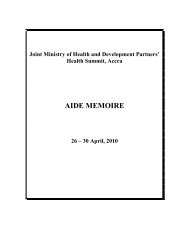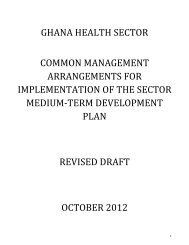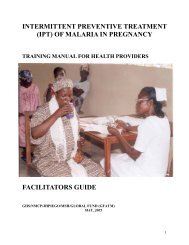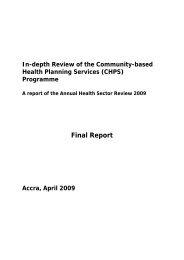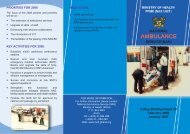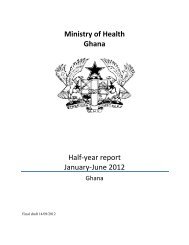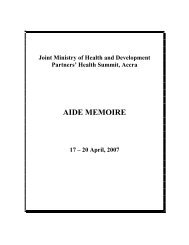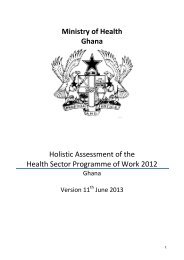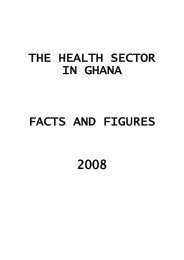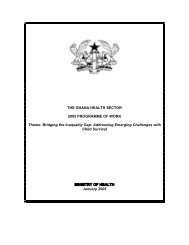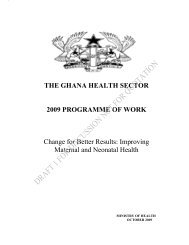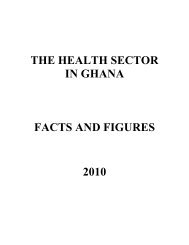Anti-Malaria Drug Policy - Ghana Health Service
Anti-Malaria Drug Policy - Ghana Health Service
Anti-Malaria Drug Policy - Ghana Health Service
You also want an ePaper? Increase the reach of your titles
YUMPU automatically turns print PDFs into web optimized ePapers that Google loves.
ANTI-MALARIA DRUG POLICY FOR GHANA<br />
6.0 STEPS INVOLVED IN THE CHANGE<br />
PROCESS / IMPLEMENTATION<br />
FRAMEWORK<br />
6.1 Preamble<br />
The local pharmaceutical manufacturing industry has been<br />
engaged throughout the policy development process to<br />
facilitate a smooth process with minimal cost to both<br />
industry and public health.<br />
A lot of public and private sector investments in equipment<br />
and infrastructure have already gone into the production<br />
and distribution of Artesunate-Amodiaquine combination<br />
therapy. The introduction of the more expensive<br />
Artemisinin-based Combination Therapies (ACTs) has<br />
further cost implications. To reduce the increased cost<br />
burden of ACTs on the most vulnerable populations and<br />
ensure their availability and affordability to the population,<br />
the recommended ACTs have been incorporated into the<br />
National <strong>Health</strong> Insurance Medicines List .<br />
Government also has the task of ensuring access to<br />
medicines and product safety to forestall the<br />
implementation challenges. It is critical that all antimalarials<br />
deployed are of good quality, safe and<br />
efficacious. To this end, the pharmaceutical inspection<br />
programmes of the national drug regulatory authority have<br />
been intensified and national drug quality control<br />
MINISTRY OF HEALTH<br />
15




